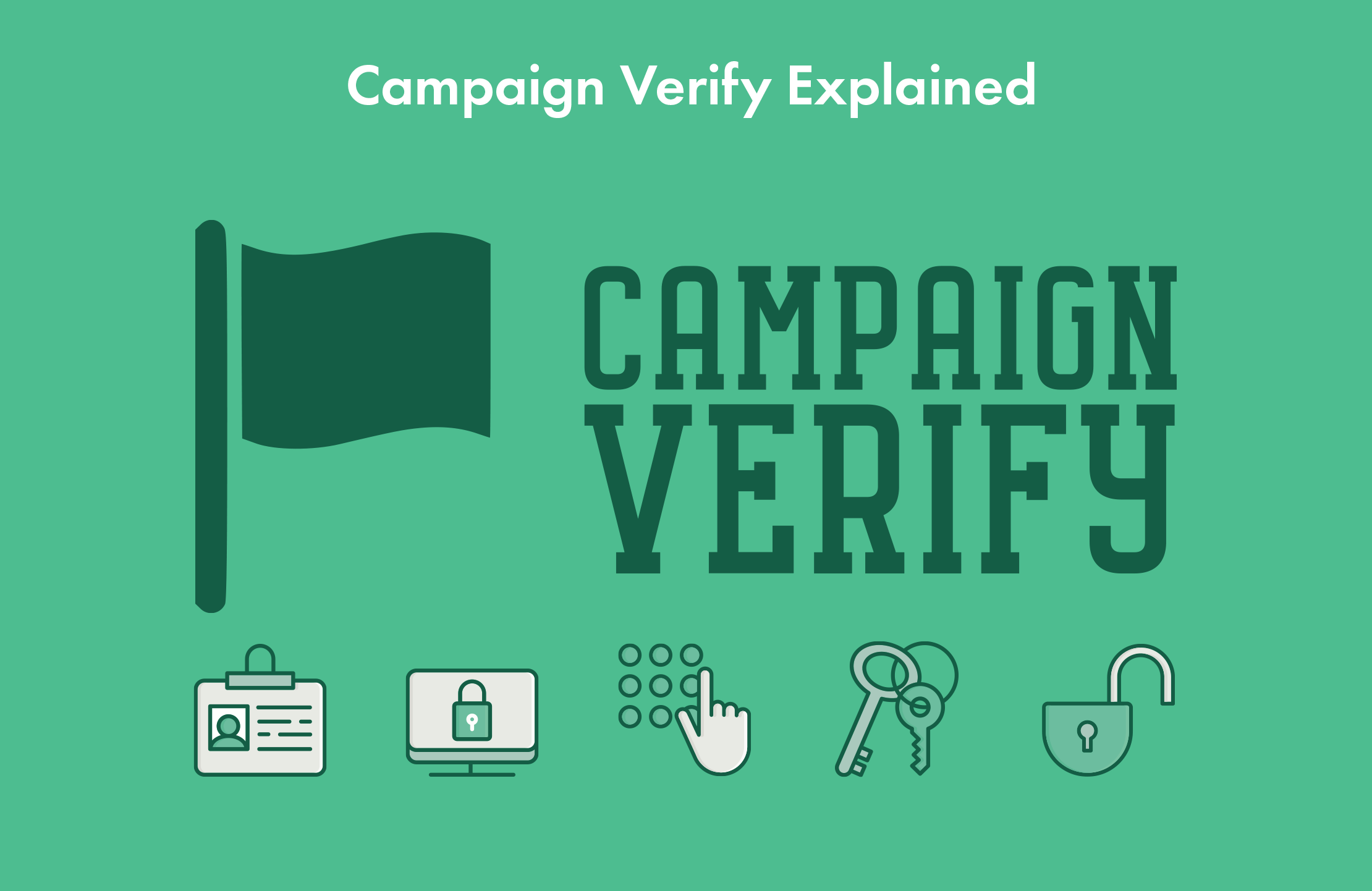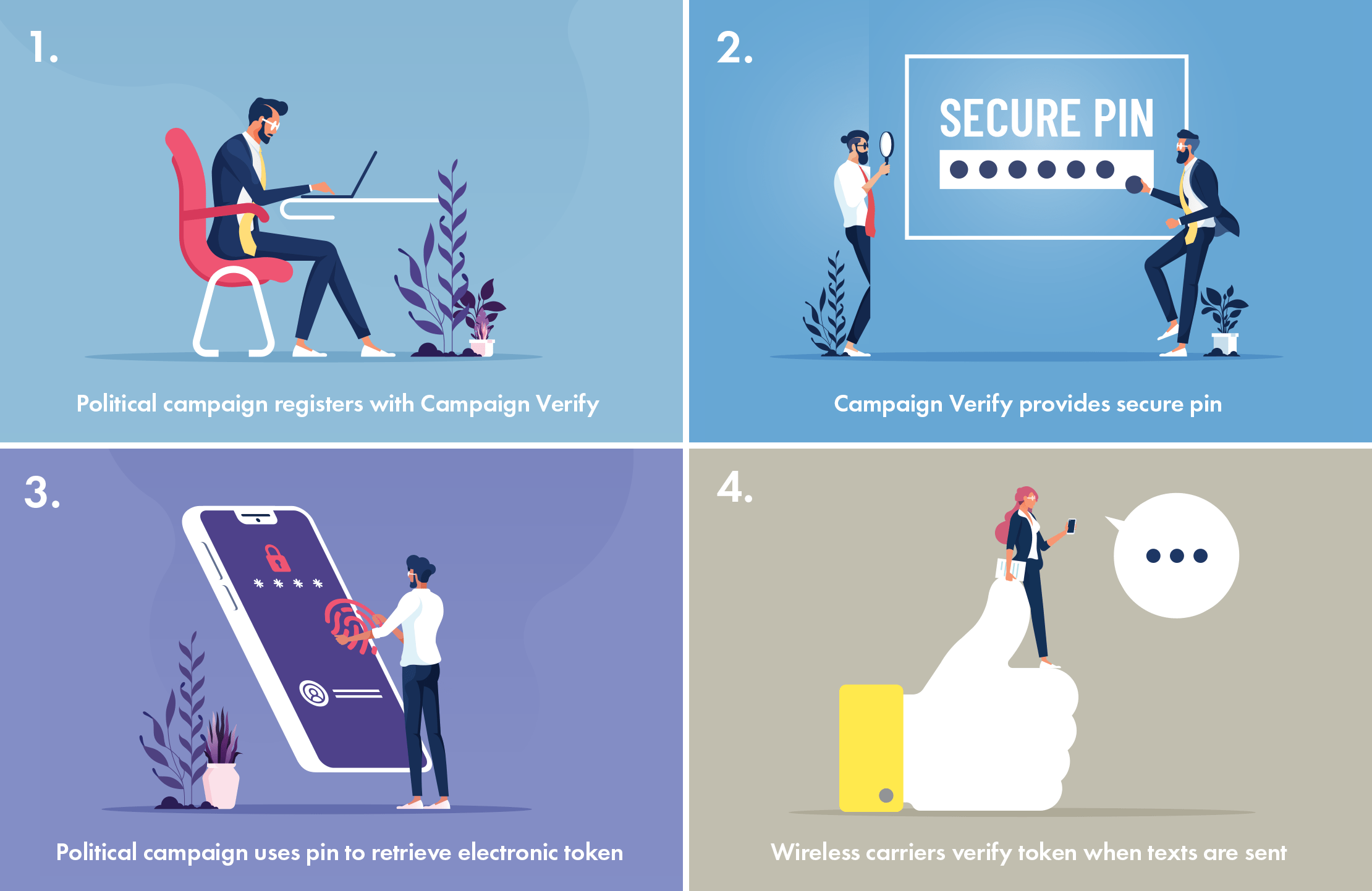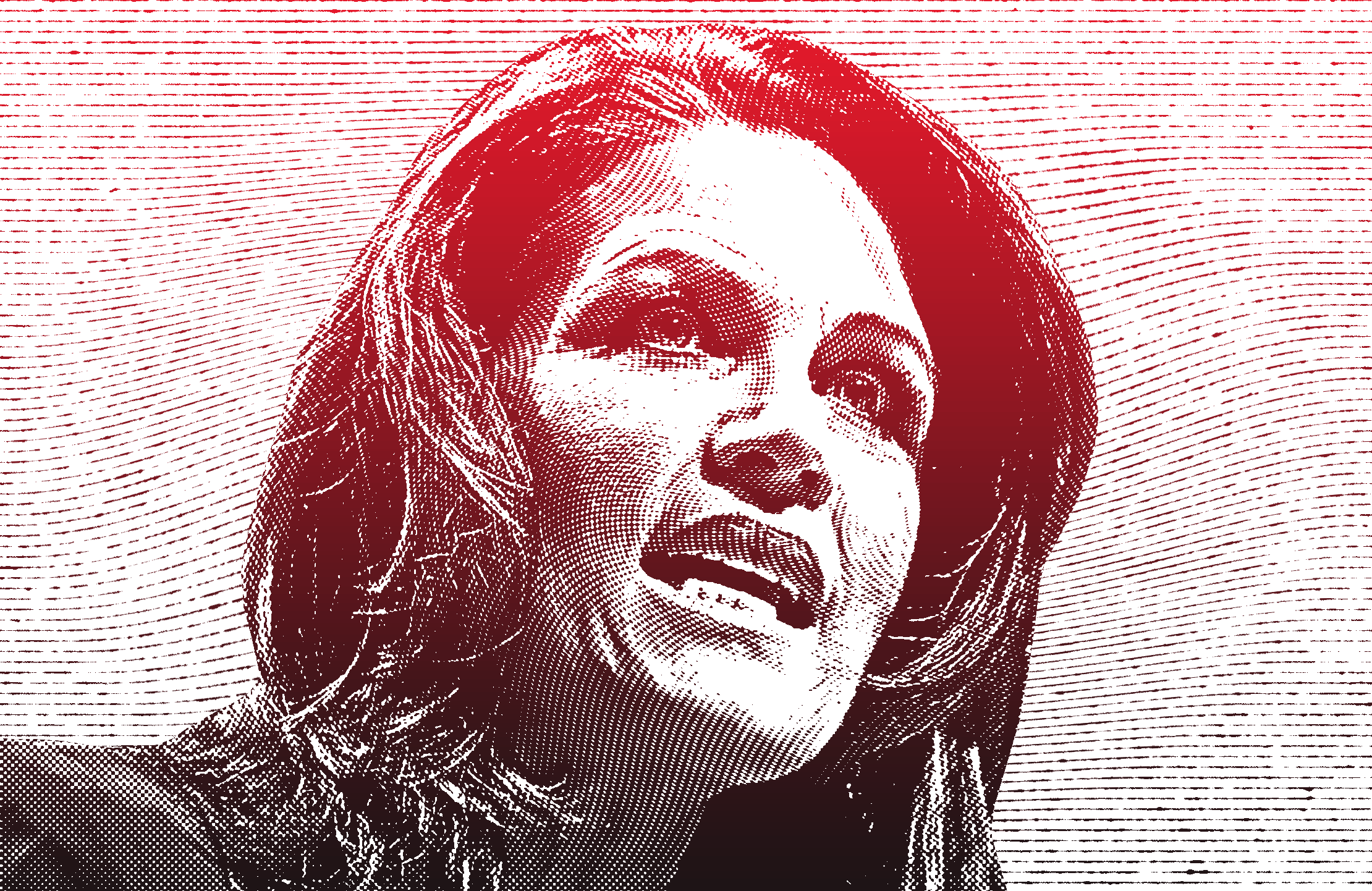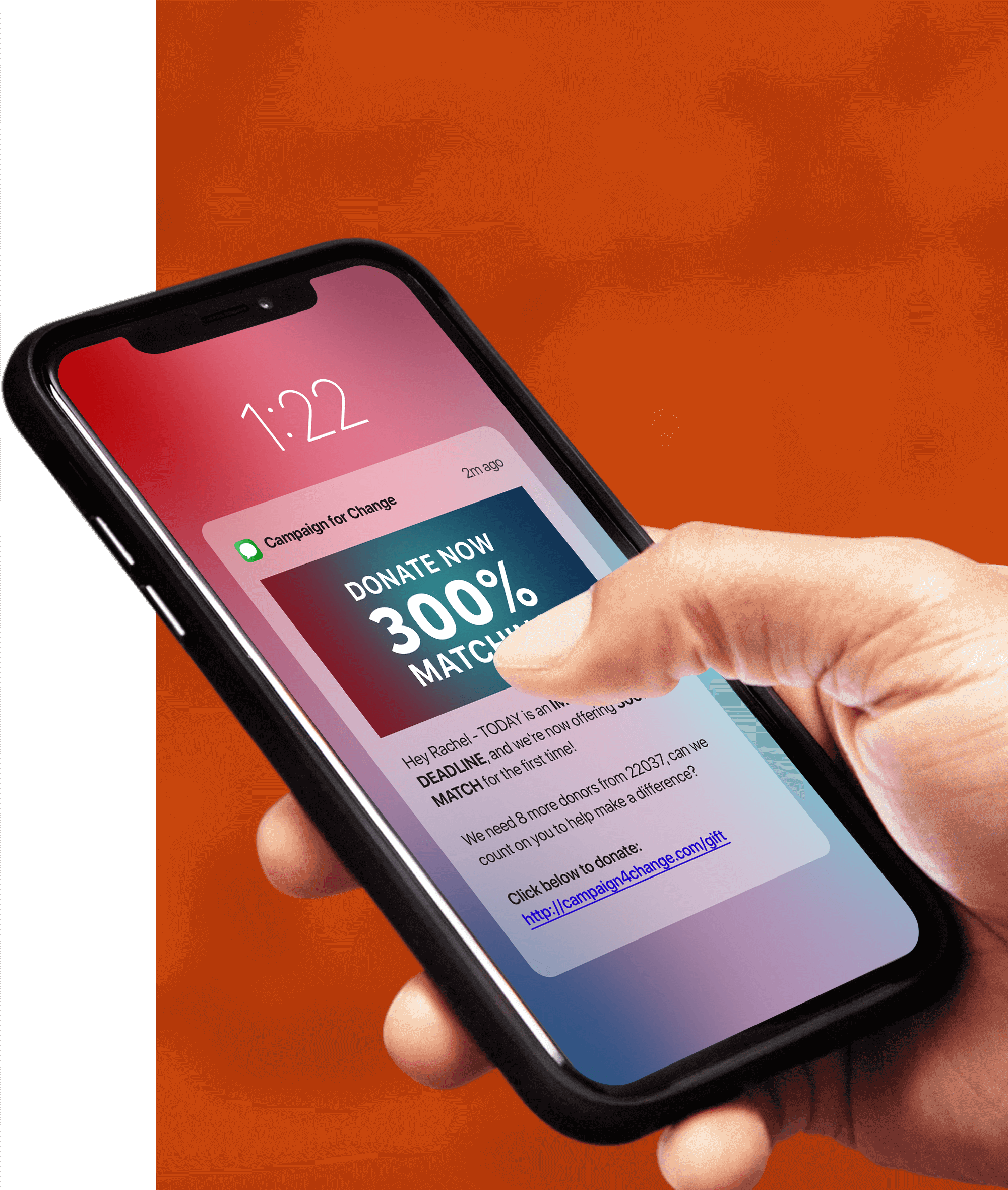
In the final weeks of the 2020 election, a new entity called Campaign Verify appeared in political text messaging circles. Campaigns were required to register with Campaign Verify to establish legitimacy so the wireless carriers would transmit their political text messages. Formed in collaboration with U.S. wireless carriers, Campaign Verify is a non-partisan service that verifies the identity of U.S. political campaigns, parties, and PACs. It’s a nonprofit organization whose mission is “to preserve trust in our elections.”
Shortly after Campaign Verify launched, we wrote about this new entity in the political text messaging market and released a video. In this blog post, we expand on what Campaign Verify is, how it works, and why the industry needs to take this service seriously.
What is Campaign Verify?
According to their website, Campaign Verify is a U.S. non-profit organization with a mission to provide a public service—on a non-partisan basis—to verify the integrity and authenticity of text messages and other communications related to political campaigns and elections. Campaign Verify exists in order to educate the public, ensure public confidence in American elections, and protect political and civil rights in the election system.
Why Register with Campaign Verify?
Political text messaging is very popular right now, and is super important as it allows political candidates and organizations to communicate with their supporters, especially during times when face-to-face communications may not be possible.
The wireless carriers realize this and want to support political text messaging, but until now, there’s been no way for carrier spam filters to accurately determine if a political text message is legitimate or not. Campaign Verify solves this problem for the wireless carriers and allows legitimate political text messages to get to supporters while protecting consumers from illegitimate political text messages.
When a political campaign registers, Campaign Verify certifies that it’s representing the campaign in question. Wireless carriers can then verify the campaign’s legitimacy and speak for it when it sends political text messages. Let’s break down the two main reasons this service even needs to exist: to prevent campaign tampering and ensure a campaign is official.
Campaign Verify Helps Prevent Campaign Tampering
There have been allegations about political campaigns playing dirty by tampering with competing campaigns’ text messaging. With Campaign Verify, wireless carriers can obtain proof that a message is from the campaign represented, making it easier to detect bad actors sending false and misleading messages.
Campaign Verify Helps Ensure a Campaign is Official
Campaign Verify also ensures that a message is actually from the political campaign represented. Sometimes, although a voter might think their donation is going to the political campaign of a candidate they support, the money could very well be going to an illegal enterprise, somebody impersonating the legitimate campaign.
Before Campaign Verify, the wireless carriers had limited ability to discern between political text messages of genuine campaigns and messages from spammers. Anyone could put out a text message impersonating a campaign and collect donations from unsuspecting voters.
How Does Campaign Verify Work?
Political campaigns depend on the wireless carriers to deliver their text messages to recipients. When a campaign registers with Campaign Verify, it receives a secure PIN used to retrieve a unique electronic token. When a text message goes out, the wireless carriers look for that electronic token to verify that the message is legitimate and from the correct campaign. The token is invisible to the recipient, but to the carrier, it’s proof of legitimacy.
Is Campaign Verify Real?
Initially, there were many doubts about the authenticity of Campaign Verify. Rumors and a lack of information fueled these doubts. But in September 2020, T-Mobile updated its Code of Conduct and mentioned Campaign Verify specifically:
“To run a political messaging campaign on the T-Mobile network, a special registration and third-party verification check are required (i.e. Campaign Verify). This process is required to ensure authenticity of the political candidate or entity.”
According to Statista.com, when T-Mobile announced this update, its cellular market share was 24.9%. Campaigns were paying attention. Shortly after this announcement, we stated in our previously mentioned blog post that in the U.S., Campaign Verify was an official part of the political text messaging process: “…after researching the matter, we are 100% percent confident that Campaign Verify is for real.”
In March 2021, AT&T announced that it, too, would require political campaigns to use Campaign Verify. As of this writing, AT&T controls 44.5% of the U.S. cellular market, which means that more than two-thirds of cell phones in the U.S. are controlled by wireless carriers that deliver political text messages only after they’ve been verified through Campaign Verify.
Campaign Verify is a part of the political text messaging landscape, and campaigns need to include it on their checklist before sending out political text messages.
How to Certify with Campaign Verify
Getting your political campaign certified with Campaign Verify is a straightforward process:

- Go to the Campaign Verify website. Have your campaign’s Fair Elections Committee (FEC) filing record number ready.
- Submit your information to Campaign Verify.
- Next, a Campaign Verify representative will review your information. This process takes one or two business days. Once approved, you’ll receive a secure PIN code sent to the email address on your filing record.
- Use the PIN to sign in to the Campaign Verify website and receive authorization tokens.
- Use the tokens with your text messaging service provider to send messages to voters.
More Information About Campaign Verify
The following are some additional details campaigns need to know about Campaign Verify.
Filing Fees
A $95 application fee is due when you file. If you submit an incomplete application or supply the wrong information, your application will be denied and you’ll need to pay the fee again when you refile.
Campaign Verify Applies to 10-digit Long Codes
Campaign Verify applies to campaigns using 10-digit long codes. You may also have heard these referred to as 10DLCs. Short codes, which Tatango uses, are not yet affected by Campaign Verify requirements.
Are Other Carriers Working with Campaign Verify?
As of this writing, only T-Mobile and AT&T are working with Campaign Verify, but industry experts expect that other carriers will follow them and soon require campaigns to register with Campaign Verify.
Campaign Verify vs. Campaign Registry
As if this new addition to the political text messaging arena isn’t confusing enough, you might have come across another firm called Campaign Registry. Campaign Registry manages 10DLC registration for many of the major U.S. wireless carriers that are in the text messaging business for A2P campaigns. Anyone who wants to use a 10-digit phone number must register with Campaign Registry. Campaign Verify is part of this vetting process. After successful verification from Campaign Verify, your CSP will provide the token to The Campaign Registry.
Political Text Messaging Is Constantly Evolving
In less than a decade and a half, political text messaging has become vital for election campaigns and political action committees. Campaign Verify is a new development in a communication system that’s rapidly evolving and improving.
At Tatango, we expect things will continue to change, and campaigns greatly benefit from working with an experienced partner for their political text messaging. To learn more, contact the SMS marketing experts at Tatango.

